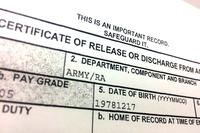While the headline to this article might suggest I’m offering important technical tips to safeguard your internet service, home Wi-Fi network or VPN account, that’s not the network I’m speaking of. While your professional network is equally important as the data you store on your computer, we often leave this network exposed and vulnerable to risk, deterioration and intrusion.
Your professional network consists of the contacts you intentionally curate relationships with to serve your career growth, philanthropic pursuits and interests. Sometimes a contact becomes part of your network online only, sometimes in person only and often in both ways. Guarding the relationships you’ve spent time developing is vital to ensure your network serves you in the ways that matter most.
1. Be Clear on Your Goals for the Relationship
With each contact to whom you pursue a networking relationship, decide how they’ll best serve you. Can they connect you to people of influence? Do they possess valuable and unique information? Are they supportive and encouraging?
Each contact in your network doesn’t need to fulfill the same expectations, but there should be a clear value to you. You will spend a lot of time and resources to build a fruitful relationship, so ensure the goal is clear, measurable and meaningful to you.
With well-defined goals, you’ll be able to track, monitor and ensure you have the right people in your network, leaving you less exposed to erosion from your network of the people you deem valuable.
2. Make Them Feel Valued
While your network serves you and your career goals, they are still human beings and have their own needs and goals as well. For many (if not most) of the people you’ll network with, feeling valued, appreciated and respected is important.
Find ways to show them that you value their connection. From a mention of gratitude on LinkedIn, to a personalized “thank-you” note, to a small gift or hosting them at an event, look for ways to make them know they’re appreciated -- and do it often.
When someone feels valued by you, they’re more likely to respond when you need help, encourage or endorse you when asked, and refer you to ideal opportunities.
3. Reciprocate
A network is not a candy jar that you just get to retrieve treats from when you need something sweet. There is an expectation that you’ll both receive value from the relationship to make it work. When you understand this, you are protecting your network.
Reciprocity does not mean the return of something exactly alike. For example, if I help someone in my network find a new job, it doesn’t mean that person must help me find a job (I have one). But they need to return the favor. This is where most people fall short in safeguarding their relationships. When one person takes and takes and takes, and the other person isn’t getting anything of real value returned, the balance is off and the relationship falters.
Your professional network could be your most valuable career asset. Over time, people will get added and others will leave your network, but with clear goals in hand, ensuring your connections feel valued and reciprocating often, you’re protecting your network and motivating the right people to stay with you.
Want to Know More About Veteran Jobs?
Be sure to get the latest news about post-military careers as well as critical info about veteran jobs and all the benefits of service. Subscribe to Military.com and receive customized updates delivered straight to your inbox.













